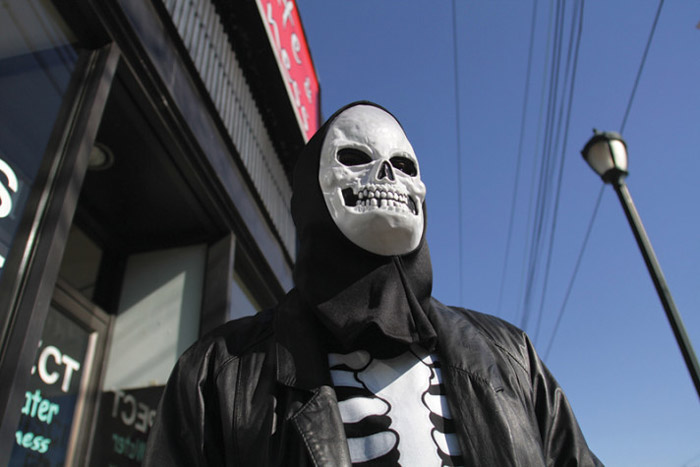Arguably, the most difficult subject to talk about objectively is yourself. Darius Monroe’s debut documentary feature Evolution of a Criminal confirms this idea. Though he places himself squarely at the centre of the film’s narrative as the titular criminal, Monroe evades revealing the motivation behind his actions, resulting in a film that can be maddeningly vague while still being worthwhile—albeit for reasons that aren’t immediately clear.
Produced by legendary director Spike Lee, the film tracks filmmaker Darius Monroe’s life from childhood until today, trying to reconcile his past with his present. Though he is now a burgeoning filmmaker from the prestigious Tisch School of the Arts at New York University, Monroe was first a kid living in extreme poverty in urban Texas. After a burglary worsened his family’s already dire financial situation, Monroe decided to help however he could—though he had a steady job, he began supplementing his income through petty theft. This early thievery culminated with him and two of his friends robbing a bank. He was eventually caught and tried as an adult—despite being 17 years old when the robbery took place—and took a plea-bargain that allowed for reduced time in prison.
Evolution of a Criminal takes the Errol Morris approach to documentary, combining highly stylized re-enactments of the past with present-day interview footage. Monroe interviews family members, classmates, teachers, accomplices, victims, and criminal prosecutors, all of whom display different degrees of sympathy for his crime and how willing they are to forgive him. This aspect is, by far, the best part of the film—the emotional rawness that anyone related to Monroe had about his actions is compounded by the fact that he is also the one interviewing them. Subjects on camera refer to him directly, but the fact that we don’t see the filmmaker’s face in these scenes puts the audience member directly in his shoes.
The flashback and establishing shots throughout the film are remarkably well composed. Scenes from his hometown are shot with a striking orange filter that convey both the nostalgia that comes from reminiscing and the dread that springs from the realization that you can’t change the mistakes of the past, no matter how you frame them. The editing is also uniquely done for what could have been a straightforward documentary. In one of the film’s most powerful moments, Monroe’s drive to prison is intercut with shots of the friends and family he would leave behind, staring pensively away from the camera.
This focus on the supporting players in his life is my main qualm with the film: It never really does what it purports to be doing—which is to show Monroe evolve. Unfortunately, we don’t get to see the evolution of an innocent youth trapped by circumstance into a bank robber, or that of a convicted felon into a talented filmmaker. The problem is that a disproportionate amount of the film’s running time is spent focusing on his bank robbery and the immediate aftermath, allowing no time to delve into how Monroe got from point A to B. Crucial expository information is almost entirely absent—we never find out how much time he spent in prison, what his upbringing was like outside of the fact that he lived in poverty, or how he came to turn his life around. As a result, we never get insight into the crucial decisions that came to define his life beyond a few clichés and platitudes.
Monroe’s strengths as a filmmaker seem to lie more in teasing the emotional truth out of others rather than engaging in deep introspection. Because of this, Evolution of a Criminal can’t claim that it shows the evolution of a criminal—instead it paints a vivid picture of the way one person’s actions affected those around him, something that is emotionally effective in its own right.
Evolution of a Criminal runs until Oct. 30 at 8 p.m. at Cinema du Parc (3575 Parc). Student tickets are $10.









